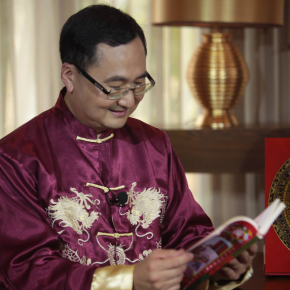宗教玄學
澳門市民很懂做布施
Why are Macau residents burning joss paper on the night of the Ghost Festival?
During the seventh month of the lunar calendar, many people burn joss paper on the streets every year. This is a kind of Macau people's traditional customs, and this custom also hides the "Feng Shui" culture. People who participate in the custom think that if the spirits of the dead are homeless, they will easily disturb their surviving families. Therefore, human beings need to burn joss papers at the Ghost Festival to save the spirits of the dead so they can secure a decent life in the underworld.
Burning joss paper is a ritual and a profound expression of empathy and compassion. Its origins can be traced back to the ancient custom of 'sending winter clothes.' In those times, people felt for the spirits suffering from the cold in the underworld, so they burned their old clothes to warm the spirits. This act of kindness has transformed over time, and today, we burn joss paper, spirit money, and other items as a heartfelt gesture of compassion towards the spirits.
Burning joss paper is a poignant way to express care and respect for the deceased souls. Burning clothes is a symbolic gesture, expressing the hope that the departed will be well-dressed and have no worries about food and clothing in the afterlife. This behavior reflects the concept of filial piety and sacrifice in traditional Chinese culture and the deep empathy and understanding people have for the souls of the departed.
During the New Year, young adults believe that burning joss paper can drive away villains and pray for peace. This concept stems from young adults encountering many obstacles at work, people being in awe of uncertainties, and people wishing to live peacefully.
Burning joss paper is an important custom in traditional Chinese culture. It carries rich historical and cultural connotations. Through the ritual of burning street clothes, people can pass on traditional culture and help future generations understand the wisdom and beliefs of their ancestors.
As Macau's living standards improve, people care more for the spirits of the dead, hoping they can have a better afterlife. As a result, people are more willing to spend on more exquisite paper clothes. To maximize profits, some business owners use cheaper materials to make products for burning, such as plastic clothes, but this practice causes environmental pollution.
When choosing materials for burning joss papers, we should consider the environmental impact and the inheritance of traditional culture, select more environmentally friendly materials, and reduce environmental pollution.
Due to Macau's small size with a large population, burning joss papers in dense residential areas can be a nuisance. Feng Shui expert MICKEY HUNG has suggested a solution. He proposes that the government divide Macau into multiple regions and organize charity feasts for the spirits in designated areas. This way, the government can play a key role in managing the practice, ensuring it is respectful of tradition and considerate of others.
In Macau, burning joss paper is currently not explicitly prohibited, but with the improvement of environmental protection awareness, people are increasingly aware of its disadvantages. The government calls on citizens to reduce burning joss paper and encourages other ways to commemorate the deceased, such as donating to charities.

